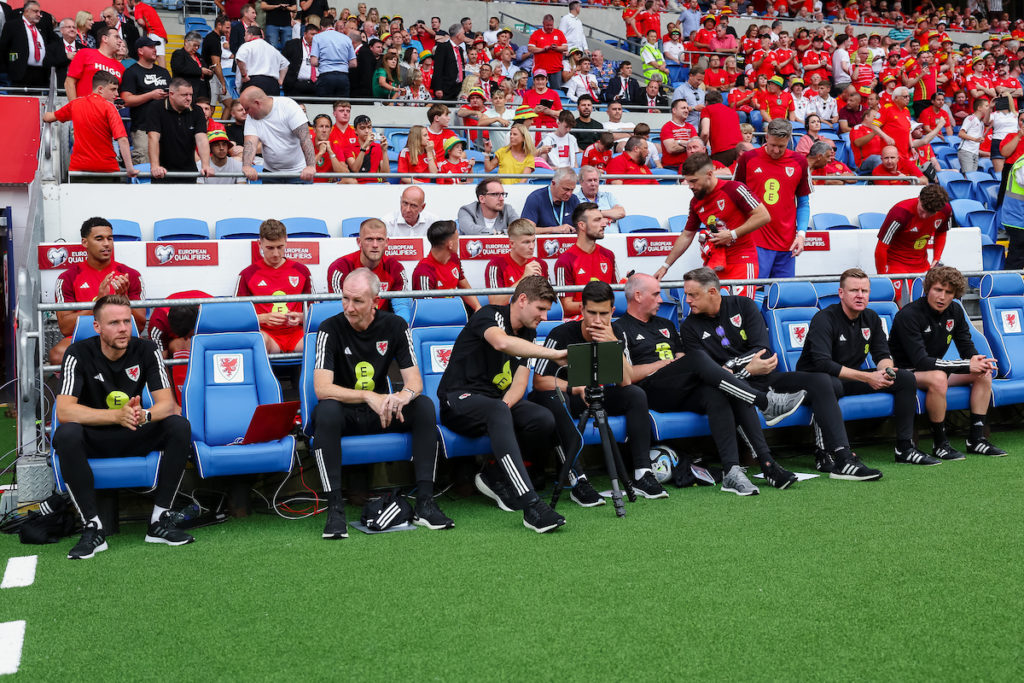By Jamie Kyte
So, as part of my role at the University, it also involves starting a Professional Doctorate—here’s to new beginnings and exciting times ahead, with lots of coffee needed.

Photo credit: Unseen Studio on Unsplash
The primary goal of my research, conducted through my applied performance analysis work at the University, is to seek insights into the utilisation of feedback in sports performance analysis.
In the world of Rugby, the coach’s box serves as a hub where coaches are equipped with a constant stream of video and data, enabling them to make split-second decisions during the heat of the game. Similarly, football has witnessed the integration of analysts on the bench. They are tasked with swiftly translating critical information to coaches, thereby influencing the course of the game with objective insights.

Photo credit: Credit – FAW Wales Media
However, the question that often arises is: How do we determine which information to relay and when? Is providing effective feedback a skill in itself? Or should there be a standardised approach for delivering information that aligns with the specific preferences of players and coaches?
This complex framework of feedback and communication has captured my fascination, leading me to dedicate a significant portion of my upcoming work to delve deeper into this realm across a diverse range of sports. My aim is to uncover the existence of a comprehensive set of best practice guidelines that practitioners can utilize to effectively deliver information, ensuring that the message resonates seamlessly with both players and coaches.
There has been notable recent research in this domain by Rob Mason from Australia, unveiling fascinating revelations regarding the art of delivering feedback. Additionally, super interesting work in the area of feedback in a live match sense has been conducted by Dr. Kieran File from Warwick University, who led a study looking at how analysis information is communicated live.
“Communication between all coaches is vital for that 90-minute plus period,” Rob Page noted.

The purpose of Kieran’s project was to study communication between performance analysts and the coaching staff during a game. The project researched ways to improve the efficiency and effectiveness of this dialogue, which is vitally important for making successful changes to play when a game is in progress.
This information holds immense significance for the continuously evolving responsibilities of a Performance Analyst.
As part of my research, I will explore the lens of feedback within Performance Analysis and unpick a series of best practice recommendations for how to deliver feedback and what mechanisms to employ with various sports.
Stay tuned for more information. You can keep up to date with me over on Twitter also @jamielkyte as I seek to get stuck into this research journey at the University of Birmingham.

J.L.Kyte@bham.ac.uk
